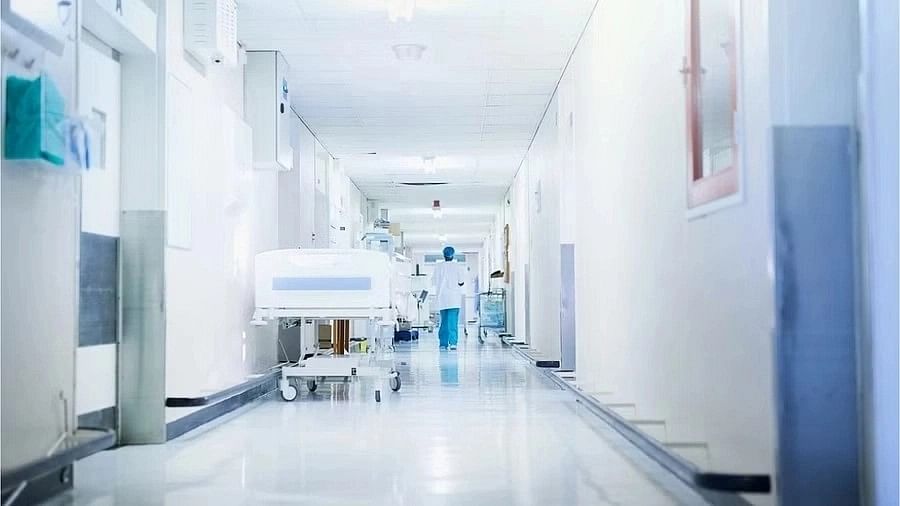
Representative image showing a hospital.
Credit: iStock Photo
New Delhi: The Supreme Court on Friday issued notice to the Centre and state governments on a plea for a direction to all government medical institutes to comply with and implement the Transplantation of Human Organs Act.
A bench of Justices Surya Kant and K V Viswanathan agreed with a contention of advocates Varun Thakur and Ram Karan for the petitioner NGO 'Gaveshna Maanvotthan Paryavaran Evam Swasthya Jaagrookata Samiti' that the issue was an important one.
The court sought a response from the Centre and all state governments.
The PIL said there is a need to reverse a trend prevailing in India over the years where living donors had been the primary source of kidneys for transplantation, and also in the last decade and a half, live donors have been main source of liver transplantation.
The plea contended that around 1,60,000 fatal road traffic accidental (RTA) deaths happen in India and almost 60 per cent have been associated with head injury.
A large number of organs from these deceased persons could be harvested for transplantation, the plea said.
The plea said the number of persons donating organs after death in India, is less than one per million population which is almost similar to some Asian countries like Japan, but far less than most Western countries.
“The fundamental rights, particularly the right to life with dignity which is enshrined under Article 21 (of the Constitution), can be achieved by setting up the facilities of organ donation and tissue retrieval centres in all government and semi-government medical colleges/hospitals, because the demand for organ retrieval is increasing periodically,” the plea added.
The plea said one registered donor can save up to eight lives through solid organ donation and improve the lives of up to 75 people through tissue donation.
“There is a need for approximately 5 lakh organs. Barely, 2-3 per cent of the demand is met, and many people die of organ failure every year across India,” it said.
